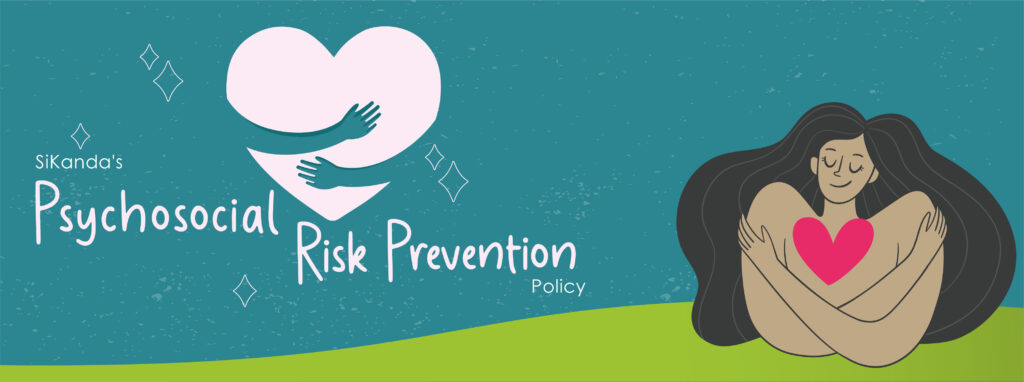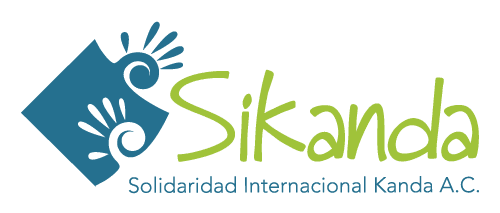
Following the Official Mexican Standard in Labor Federal Law NOM-035-STPS-2018, SiKanda’s Psychosocial Risk Prevention Policy has aimed to promote the overall well-being of those on the Sikanda team, and a positive and friendly work environment, through the prevention of psychosocial risks and workplace abuse. This pledge arises from the understanding that the organization’s staff is its most valuable and fundamental element for the advancement of the organization’s mission. It also emphasizes the importance of seeking a consistency between what SiKanda advocates for outwardly in terms of human rights and social change and justice, and generating a workplace that upholds the same values inwardly.
As an organization, SiKanda recognizes that those of us who work in human rights defense experience high levels of stress caused by a “context of authoritarianism, discrimination and inequality”(Frontline Defenders, 2022). Likewise, we face expectations and responsibilities that feed into the idea that people in our line of work should be on call at all times, sacrifice personal space, and dedicate all our time to our chosen cause, which leads to difficulties in setting boundaries as well as inciting feelings of guilt when dedicating time to rest and personal life. Hence, this policy also incorporates the perspectives of self-care and collective care, where individual, institutional and collective responsibilities that promote comprehensive well being are recognized, for the benefit of individuals, the organization, its mission, and the long-term sustainability of the processes of social transformation.
SiKanda recognizes that the people who work with the organization carry out work related to the defense of human rights. Human rights defenders often experience a heavy toll on their physical, emotional and spiritual health due to the nature of their work. The organizations Consorcio Oaxaca and Iniciativa Mesoamericana de Mujeres Defensoras de Derechos Humanos (The Mesoamerican Initiative of Women Human Rights Defenders) identify that this toll is due to, among other factors:
- Structural violence, which manifests itself in high levels of inequality, the criminalization of protests, femicides, and enforced disappearances.
- Threats and assaults against human rights defenders.
- Some women’s work as human rights defenders not being formally recognized, due to their not being part of a registered organisation ( E.g. collectives, groups, communities), leaving them more vulnerable to the risks of their work.
- Not having the adequate emotional preparation for what is required to be a human rights defender.
- The seriousness of the violence present in the life and social and work context of human rights defenders.
- The prevalence of a culture of social activism that values sacrifice and unbalanced dedication as ethical values, which makes the psycho-emotional impacts invisible, leaving their attention to the individual level.
- The job insecurity that human rights defenders face.
In particular, women who work in the defense of human rights face:
- The violence that is experienced as a result of simply being a women in the public, private and labor spheres, which has a major impact on self-esteem.
- Gender discrimination, which undermines the ability to recognize risks, limits decision making about our safety and reduces support networks, generates an overload of care work.
- The precarious measures of self-care in organizations and movements that are subordinated to a style of activism that reproduces the role imposed by the patriarchal culture: “mothers of everyone, but orphans of ourselves”.
This makes the staff of organizations, particularly in the field, and those who carry out HRD advocacy work, particularly vulnerable to vicarious trauma or so-called “compassion fatigue”. The nature of SiKanda’s work in relation to the defense of human rights, the fight against poverty, violence prevention, and the promotion of social justice, among other areas, is by nature a psychosocial risk factor, as it takes place in an adverse context of violence and structural injustice.
As activists and defenders of human rights our work consists of addressing and combating structures such as systematic violence and patriarchy which puts our health, well-being and even lives at risk every day. This fact high levels of stress and affects our physical, mental, emotional, energetic and spiritual health. Addressing and counteracting the effects, managing and discharging emotions without repressing them or harming ourselves, healing wounds and preventing wear and tear, is part of the integral protection of women human rights defenders and activists. At the individual and collective level, it is necessary to generate habits of care and self-care as well as agreements within our organisations that allow us to feel accompanied, protected, listened to and healthy.
– Consorcio, Compendium of Self-Care and Healing Tools, 2020
As stated in this Policy, SiKanda intends to emphasize the prevention of psychosocial risks. In turn, the processes of attention to them are focused on the concepts of self-care and collective care, understood as:
Self-care: “a political tool that allows us to maintain not only activism as an engine of social transformation, but also life and physical, mental and emotional health”. Self-care is any activity done intentionally to take care of ourselves spiritually, mentally, physically or emotionally. It can include physical activity, prayer, music, storytelling, rest or any other practice that engages both mind and body. It is about finding what nourishes us and increasing our resilience by engaging in behaviors that help us feel more safe, secure, and balanced, limiting what drains our energy. It is also about decreasing the likelihood that we will direct our experiences of stress or trauma toward others in harmful ways. For most, self-care requires changes in our practices and habits. You get the most benefit from practicing self-care continuously over time, and giving up harmful habits. Self-care is not about isolating ourselves and ignoring our colleagues, families or work, or avoiding challenging situations.
“Self-care is a radical act…It’s not something we should treat as an afterthought (…)I think from the beginning I was saying that, as a woman, I need to be aligned within my body, my mind and my soul so I can stay healthy and not become toxic to my children, my husband, my friends, my family, to the job I go to every day. For me it’s something that should be prioritized (…) It should become a war of life or death. Because if not, we are going to lose ourselves and in the end we are going to fracture our movement, we are going to weaken our organizing process, we are not going to advance. We will have lost ourselves trying to work, work, work and not looking after our bodies, minds, souls and communities that do the work.”
– Grace Ruvimbo, Zimbabwean activist, in “How to Root Ourselves in Care and Dance the Revolution?”
Collective care: “the political meaning of self-care can only be possible whilst also considering , in the reflection and action that allows us to learn to feel in company, in resistance and to transform from belonging to something more than ourselves”. it implies taking care of ourselves, while intentionally supporting the care of our colleagues, friends, family and communities. It recognizes the shared responsibility we all have to ensure wellness in our organizations, and that includes self-care. Collective care improves the way we relate to each other, decreases feelings of isolation, and increases collective power and solidarity. It can include practices such as an informal group of like-minded peers, generating spaces to connect on a personal level with colleagues, creating collective rituals, celebrating team achievements, taking time to reflect on our work, among others. You can influence the creation of an organizational culture of care by participating in these activities on a regular and sustained basis. It is important that the activities resonate with the team, and that they are actively supported by the Coordination and Management.
Read SiKanda’s Psychosocial Risk Prevention Policy in Spanish here.

